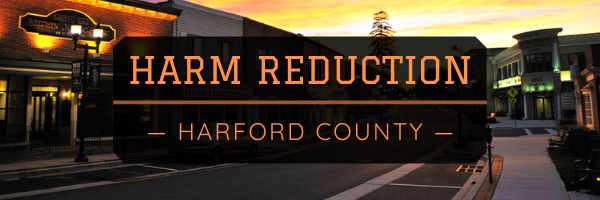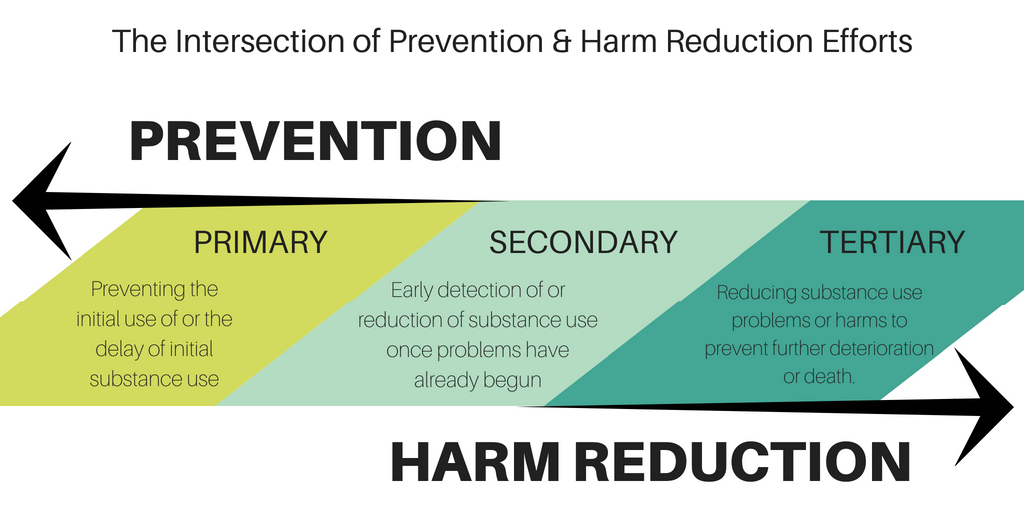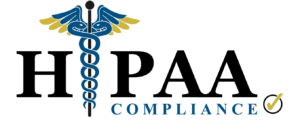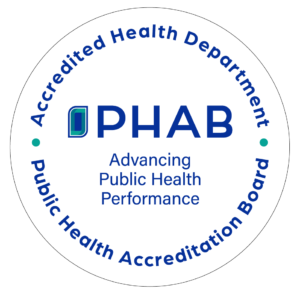
Location and Phone Number:
120 S. Hays Street
Bel Air, MD 21014
410-877-2341
What is Harm Reduction?
Harm reduction is a set of practical strategies and ideas aimed at reducing negative consequences associated with drug use. Harm Reduction is also a movement for social justice built on a belief in, and respect for, the rights of people who use drugs.
— National Harm Reduction Coalition
Learn more about the Principles of Harm Reduction from the National Harm Reduction Coalition and read about what we’re doing below. If you are a community member or organization interested in participating in harm reduction work in Harford County, visit the Maryland Department of Health’s ACCESS Harm Reduction page or email hchd.harmreduction@maryland.gov.

What we’re doing
Harm Reduction Community Advisory Board
A group of individuals and organizations committed to promoting the health, dignity, and safety of people who use drugs and are sex-workers in Harford County by educating about, advocating for, and promoting the use of harm reduction principles.
Join virtually the 2nd Wednesday of each month, 6-8pm, via Google Meet at meet.google.com/vyd-jpvq-cia.
Email hchd.harmreduction@maryland.gov for more information.
Naloxone
We offer free naloxone (Narcan®) and overdose response training. Naloxone training is available to individuals, organizations, and community groups. We distribute naloxone widely through partnerships with:
Department of Emergency Services
Detention Center
Harford County Office of Drug Control Policy
Harford County Public Schools
Local police departments
Office on Mental Health Harford Crisis Response
Sheriff’s Office
Springboard Community Services
Substance use treatment centers
Email hchd.harmreduction@maryland.
ShopRite® Partnership
Free naloxone is available at all Harford County Klein’s ShopRite® locations, including Aberdeen, Bel Air (Main St. and Festival), Cardiff, Forest Hill, and Riverside.
Ask your ShopRite pharmacist for more information.
Fentanyl Test Strips
Fentanyl test strips are tools for people who use drugs (PWUD) to identify the presence of illicit substances in the drug supply. This gives PWUD the opportunity to proceed with more caution, to call for help, to use less, or choose not to use at all. Fentanyl test strips have been proven to reduce overdose fatality. Email hchd.harmreduction@maryland.gov to request fentanyl test strips.
Outreach & Education
We are available to attend health fairs, conferences, community events, and gatherings to provide training. We offer the following curriculums but can also customize presentations to meet your unique needs.
Anti-Stigma
Cultural Competency
Harm Reduction 101
Naloxone & Overdose Prevention
Sexual Health
Social Determinants of Health
Overdose Prevention
Through collaboration with other local agencies and community organizations, the Harm Reduction Program reviews local overdose data to inform local approaches to overdose prevention. We alert our partners and the community of concerning trends in overdose and dangers in the drug supply. We serve as a sounding board for strategies to combat overdose and a resource hub. We aim to connect individuals and organizations, ensuring a synergistic response to the overdose crisis. You may direct questions about naloxone distribution and overdose statistics to hchd.harmreduction@maryland.gov
Peer-Delivered Service Models
Peers are people with lived experience, people who have themselves faced challenges with substance use and are therefore able to more effectively connect with other people who use drugs and are in recovery. In Maryland and here at the Health Department, peers are employed as Peer Recovery Specialists. Call (410) 877-2340 to ask to speak with a peer.
Recovery Month
Recovery Month is a national observance held every September to educate Americans that substance use treatment and mental health services can enable those with mental and substance use disorders to live healthy and rewarding lives. Click here to learn how Harford County celebrates Recovery Month and view the current year’s calendar of events.
Recovery Stories
People living in recovery come from diverse backgrounds and have a wide array of experiences. No one person’s recovery looks exactly like anyone else’s. To illustrate this diversity, we’ve collected personal recovery stories from real people in Harford County. Click here for their stories.
Other Notable Partnerships
Bel Air Law Enforcement Assisted Diversion (LEAD) Program (with Bel Air Police Department and Springboard Community Services)
Substance use treatment providers
Voices of Hope of Harford County
What’s working elsewhere
Overdose Prevention Sites
Advocates in Maryland have pushed for overdose prevention sites where PWUD can use in the presence of supportive service providers to prevent overdose and infectious disease transmission. OPS have existed in other countries for some time with good outcomes. The Health Department takes no stance on OPS and has no plans to explore them at this time.
Pharmacy-based Syringe Distribution
Pharmacy voucher programs provide sterile, unused injection equipment to PWUD and link people to valuable supportive services, reducing overdose and preventing transmission of infectious disease. Programs such as this are available in Frederick and Wicomico Counties.
Syringe Services Programs
Syringe services programs provide wrap-around supportive services for PWUD, including the provision of sterile, unused injection supplies, in order to improve health outcomes. These programs exist in 10 of Maryland’s 23 jurisdictions. The Health Department does not offer syringe services at this time but continues to consider all public health approaches to reducing overdose and preventing transmission of infectious disease.
Where can I learn more?
Visit our blog for more information on harm reduction, Hepatitis C, HIV, PrEP, STIs, and lots of other topics relevant to drug user health!
We do not offer all harm reduction services. Visit the links below to learn more about programs that do in neighboring counties and Baltimore City.
A statewide guide to harm reduction services is available here.
Cecil County Health Department’s Harmony Program
Voices of Hope
Baltimore County Harm Reduction Program
Baltimore City Community Risk Reduction Program (including the Baltimore City Needle Exchange Program)


